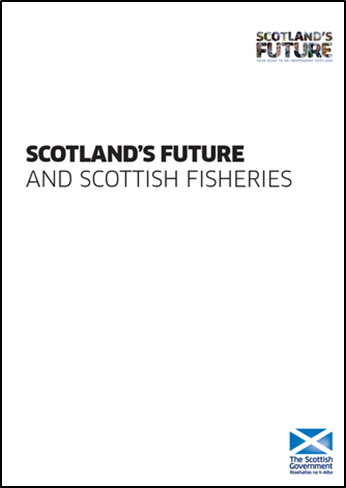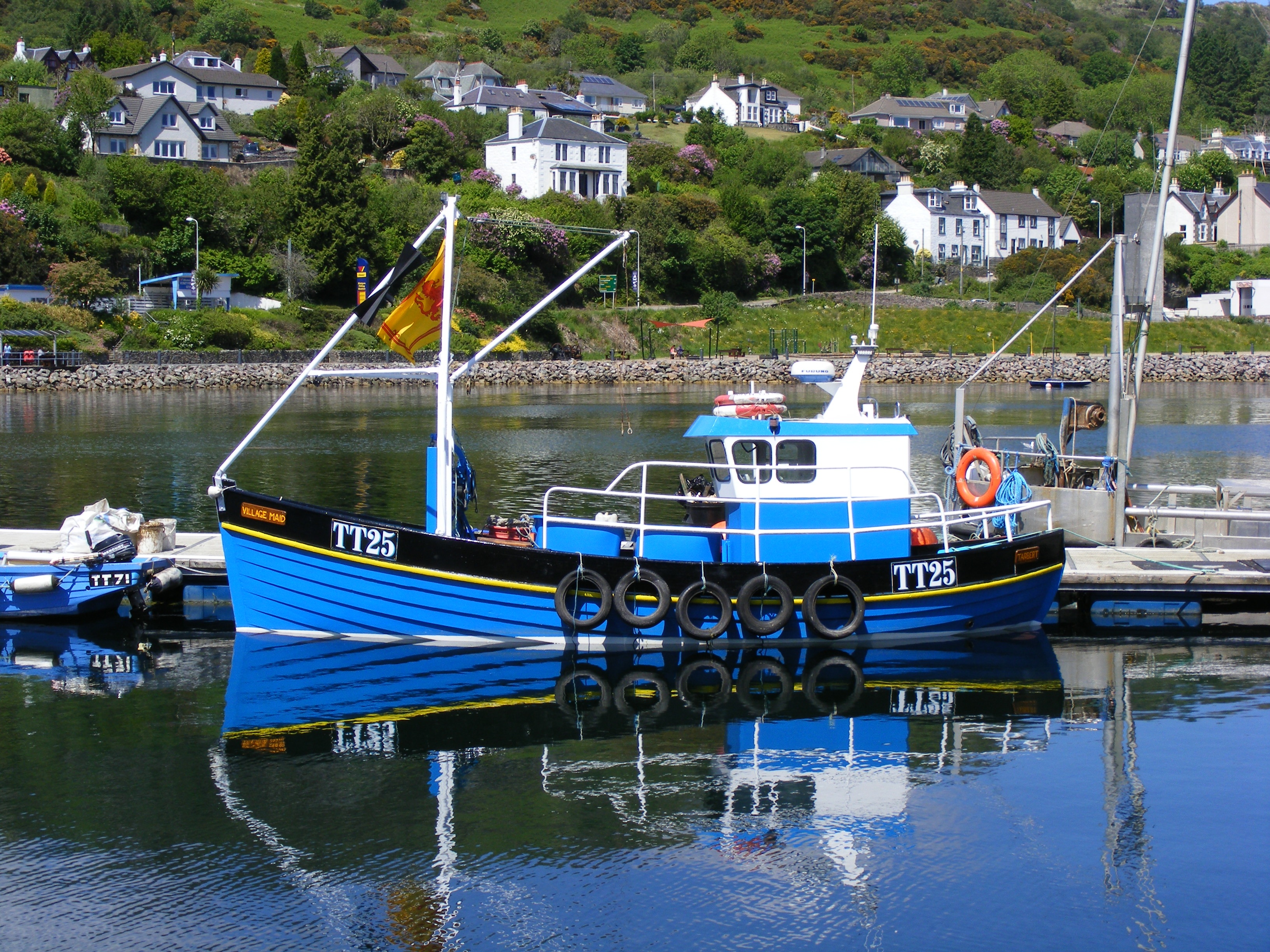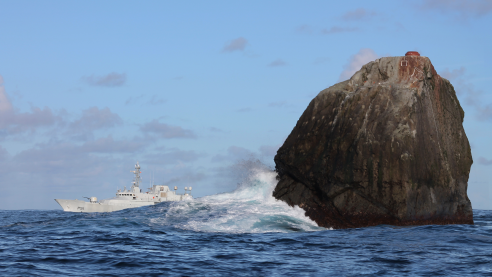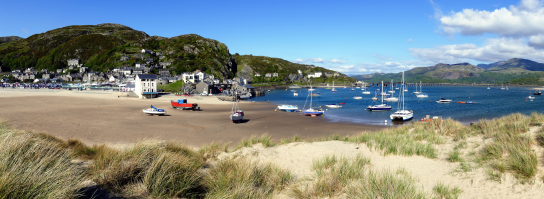In the 2016 European Referendum, the Scottish local authority area that came closest to a vote to leave the EU was Moray. The Moray area, lying immediately south of the Moray Firth, together with rural Aberdeenshire, lying to its immediate east, have long been important areas for Scotland’s fishing industry.
Peterhead, 31 miles to the north of Aberdeen, is the UK’s largest fishing port by the number of tonnes of fish landed, and with another important fishing town further north at Fraserburgh, this is the heartland of Scottish fishing.
Politically, North East Scotland is also distinctive in important respects, not least from the cities and towns along the central belt of Scotland, around 150 miles to the south. Since the 1980s in particular, it has been a battle ground between the Scottish Conservatives and the Scottish National Party, with different constituencies, Banff and Buchan, Gordon and Moray, changing hands between both parties over this period.
 In important respects this Scotland is a very different place from the large urban conurbation around Glasgow. For the SNP, historically parts of NE Scotland were regarded as its electoral heartland, not least during the period prior to Scottish Devolution in 1999 when the Party had struggled badly to make any in-roads into Labour’s dominance in West Central Scotland. Yet in the 2014 Scottish Independence Referendum, the vote for Independence was just under 40% in favour in Aberdeenshire and only 42.4% in Moray, in sharp contrast to Glasgow and some of its neighbouring areas where there was a majority vote for Independence.
In important respects this Scotland is a very different place from the large urban conurbation around Glasgow. For the SNP, historically parts of NE Scotland were regarded as its electoral heartland, not least during the period prior to Scottish Devolution in 1999 when the Party had struggled badly to make any in-roads into Labour’s dominance in West Central Scotland. Yet in the 2014 Scottish Independence Referendum, the vote for Independence was just under 40% in favour in Aberdeenshire and only 42.4% in Moray, in sharp contrast to Glasgow and some of its neighbouring areas where there was a majority vote for Independence.
For the SNP, it would appear that it could win NE Scotland seats for the Scottish and UK Parliaments, and at local council level. But not, in 2014 at least, for Independence. A key factor said to be at play here was the reluctance of the fishing communities to vote for Independence given the SNP’s stance on EU membership and with it a commitment to any Independent Scotland within Europe being part of the EUs Common Fisheries Policy, a policy that has been hugely unpopular in fishing towns across Scotland and other areas of the UK.
Produced by the Scottish Government ahead of the 2014 Independence referendum, this document laid out the SNP’s commitment to membership of the EU and of its Common Fisheries Policy (page 4 and pictured to the right):
Following a vote for independence the Scottish Government will immediately enter into EU membership negotiations with the UK Government and other EU Member States to ensure that Scotland achieves a smooth and timely transition to independent membership of the EU. Scotland is at the heart of delicate, complex and longstanding fisheries agreements involving 27 other countries within the EU and beyond.
The relative importance of the fishing industry to the Scottish economy outweighs the economic contribution of fishing in other parts of the UK. Across the UK, but much more so in England, fishing has been a key plank in the support for Brexit. In England, the symbolism of fishing arguably exceeds that which is evident in Scotland. Outside the main Scottish fishing communities, fishing policy has little influence on voting patterns. However, it does represent a real challenge for the SNP in parts of the country that it tended to regard as its heartland areas.
As David Bell among others have noted, ‘Fishing and Brexit go hand in hand. Removal of EU boats from UK waters was one of the key demands of Leave supporters’, and fishing rights have proved to be one of the most contentious dimensions in the Brexit negotiations between 2016 and 2020.
David Bell also states, 'The UK fishing industry is dominated by Scottish production. This is partly because it can access a much larger share of the UK EEZ than the other nations. In 2018, more whitefish and pelagic fish were landed in Shetland than in England, Wales and Northern Ireland combined. The fish most likely to become available if EU boats are given more restricted access to the UK EEZ are hake, herring, mackerel and saith. Landings of these fish in Scotland were valued at £129.7m: the comparable figure for England was £7.6m. Thus, Scottish production already substantially exceeds that in England in those fish stocks likely to freed up by EU exit. This could see the Scottish fishing industry emerge as the main beneficiary of increased access to fishing quota within the UK EEZ'.
Therefore, outside of the CFP there is an opportunity for increased landings for Scottish boats. However, as an independent nation in the CFP, Scotland would need to bargain away some of these newfound gains, gains that were enabled by Brexit.
Not surprisingly, fishing has been central to political conflict between the Conservatives and SNP in this part of Scotland over many years. Any independent Scotland in the Common Fisheries Policy is unlikely to win huge levels of support in many of the fishing towns. Would an Independent Scottish government put fishing before other benefits that come from EU membership? But in an Independent Scotland outside the EU, Scotland’s fishers would enjoy access to some of the richest fishing stocks of any European waters.
The SNP could arguably be said to have been on the defensive in fishing communities across Scotland over the past few years, but it would be a mistake to think that all those involved in Scottish fishing were enthusiastic supporters of Brexit. Most inshore and shellfish fishermen were anti-Brexit, while many of the owners of larger trawlers and some fish processing firms in the North East of Scotland tended to be pro-EU withdrawal.
Further, following the UK-EU withdrawal deal that was arrived just before Christmas 2020, the Conservatives are also under attack, with claims that they deal effectively betrayed fisher folks and that promises made to them had not been kept. Certainly within the first few months of 2021, the news about the impact of Brexit on Scotland’s fishing industry has been far from positive.
Struan Stevenson, ‘Fishing crisis: Scotland’s fishermen hit the Brexit rocks – but whose fault is it?’, The Herald, January 23, 2021.
For the fisher folks of Scotland, as elsewhere in the UK, the end of the much criticised Common Fisheries Policy has not led, as yet, to them taking back control, the phrase most associated with support of Brexit elsewhere in the UK, of fishing stocks around Scottish and UK waters. What is on the horizon now is the question of whether such control should be with the UK Parliament, or the Edinburgh Parliament.
The 2020 UK-EU Brexit Deal: Sell-out or a New Era for Scotland’s Fishing Industry?
Days before Christmas, 2020, several years of protracted wrangling and dispute between the EU and UK Government came to a close with a deal that finally heralded the UKs exit from the European Union. Despite its marginal contribution to the economy of both the UK and of Scotland, one of the most contentious and troubled areas in these negotiations concerned access for European vessels to what would become UK waters, waters that contained sizeable stocks of fish and which are of major importance to a number of European countries. Access to these waters was a bargaining chip used by the UK Government to secure other concessions from the EU. However, how much would the UK have to give the EU in return for deals in relation to trade, customs and other areas of negotiation?
The UKs withdrawal from the EU was heralded by fishing communities and fisher folks across the UK arking a new chapter in the history of the fishing industry, one that would see UK boats able to secure a much large share of fish stocks in seas that would if not closed to EU registered vessels, would at least see such access and fish quotas for them greatly reduced.
On December 28, 2020, within days of the deal being announced, Fergus Ewing, Fisheries Secretary, led the Scottish Government’s attack on the deal as a betrayal of Scotland fishing industry:
‘This is a terrible outcome for Scotland’s coastal communities. The small gains in quota for mackerel and herring are far outweighed by the impact of losses of haddock, cod and saithe – and that threatens to harm onshore jobs and businesses too, linked to harbours, fish markets and processing facilities…. As our analysis shows, there is very little here to celebrate, and plenty to be worried about for the future of Scotland’s fishing interests’.
Such claims from a leading SNP spokesperson were not unexpected, but this could also be read as but the latest stage in the ongoing struggle between the SNP and Scottish Conservatives for political support in many of Scotland’s key fishing communities, success in which could potentially win or lose a number of seats in both the Scottish and UK parliaments. The SNP’s view that the deal amounted to a sell-out of Scotland’s fishing industry, and threatened further economic devastation on hard pressed communities was bolstered by the response of the Chief Executive of the key organisation in the fishing industry in Scotland, the Scottish Fishermen’s Federation, Elspeth MacDonald, speaking on December 29, that the:
‘…deal falls very far short of the commitments and promises that were made to the fishing industry by those at the highest level of government. It does not restore sovereign UK control over fisheries and does not permit us to determine who can catch what, where and when in our own waters. From 1st January 2021, the EU fleet has full access to the UK EEZ for what is essentially six years, as fisheries are managed on an annual basis…'.
Yes, the UK fleet has reciprocal access to EU waters, but they are far more reliant on our waters than we are on theirs – EU vessels fish six times more in UK waters than we fish in the “At the end of the six years, how does the government envisage us claiming a fairer share of the catches in our own waters without triggering punishment clauses in the deal?
'…Although we are glad to be out of the CFP, our battle to secure better arrangements for our fishermen is far from over. We are now a coastal state with one hand tied behind our back and the industry’s task in the months and years ahead is to right the wrongs of this deal'.
Further comments the following day from Mike Park of the Scottish White Fish Producers Association to the effect that:
‘The deal we’ve been dealt gives us less fish than before, a significant reduction in income to the Scottish fleet, decommissioning may be one route out of this – this is a political embarrassment’.
This also provided the SNP with more ammunition.




Rate and Review
Rate this article
Review this article
Log into OpenLearn to leave reviews and join in the conversation.
Article reviews